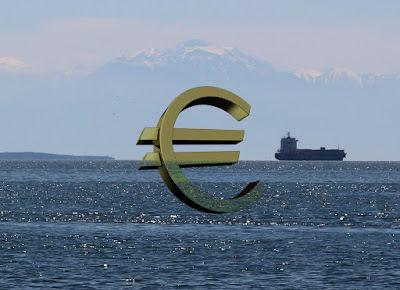Bernanke lectures - The Federal Reserve and the financial crisis
In March, the Chairman of the Federal Reserve (ie the US Central Bank) gave a series of four lectures about the Federal Reserve system and the Financial Crisis to students of Georges Washington University. I have enclosed the videos of these classes. Dr. Bernanke, who is also a prominent academic researcher, is very skilled at explaining very complex problems with easy words. So, even non economists will find these lectures accessible and useful to understand the sequence of events that led to a global financial crisis and how the Federal Reserve responded to it.
Let me give you a few extracts and comments that I found particularly worth highlighting:
- The three pillars of central bank action are:
- Monetary policy (setting interest rates)
- Provision of liquidity (lender of last resort)
- Financial regulation and supervision (shared with other agencies)
- "We did not foresee that declining house prices would trigger a financial crisis." This is an honest but clear admission that the third pillar has been overlooked at. However, Dr Bernanke also explains why, in his view, monetary policy and provision of liquidity have been appropriate and efficient both before and during the crisis.
- Bagehot dictum: "during a panic, central bank should lend freely, against good assets, with a penalty rate".
- "Liquidationist theory" has made things worse by arguing that a depression - and widespread pain - was necessary to compensate for the excess of the 20s. I wonder if the same could not be said about the proponents of full fledged austerity and competitive deflation in Europe.
- The housing bubble in the USA (late 90s-2000s) may have been fueled by strong capital inflows from Asia. Indeed, after the 1997 Asian financial crisis, Asian investors found in US treasuries and mortgage backed securities the perceived safety of assets that they had been looking for.
- Dr Bernanke argues that Lehman Brothers was insolvent and therefore the Fed was not in a position to provide a loan to the broker-dealer. It would have been up to the Treasury to first recapitalize the broker-dealer before asking for the Fed's help. Interesting argument but I am not sure if it lifts all the question marks regarding what turned out to be a collective failure...
My personal view is that overall, I have been impressed by the handling of the crisis by American authorities. I have no doubt that the swift reaction of US policy makers on many fronts (aggressive and early monetary easing, large fiscal stimulus, strong support to financial institutions) have been very efficient in preventing a crisis from turning to the worse. The skills of Dr Bernanke - who along with Gertler and Gilchrist created one of the most famous models in macroeconomics - probably played a significant role.
Part 1
Part 1
Part 2
Part 3
Part 4


On the same subject of monetary policy, Joeffrey Frankel, economist from Harvard University, proposes to replace the common Inflation Targeting objective by a new Nominal GDP targeting, which he claims would be more flexible. Indeed,he argues that nominal GDP targeting could have prevented the housing price bubble in the USA and the excessive tightening by the ECB when oil prices surged. You can read his article, which includes a history of previous mainstream monetary objectives, in VoxEU http://www.voxeu.org/index.php?q=node/8106
ReplyDelete